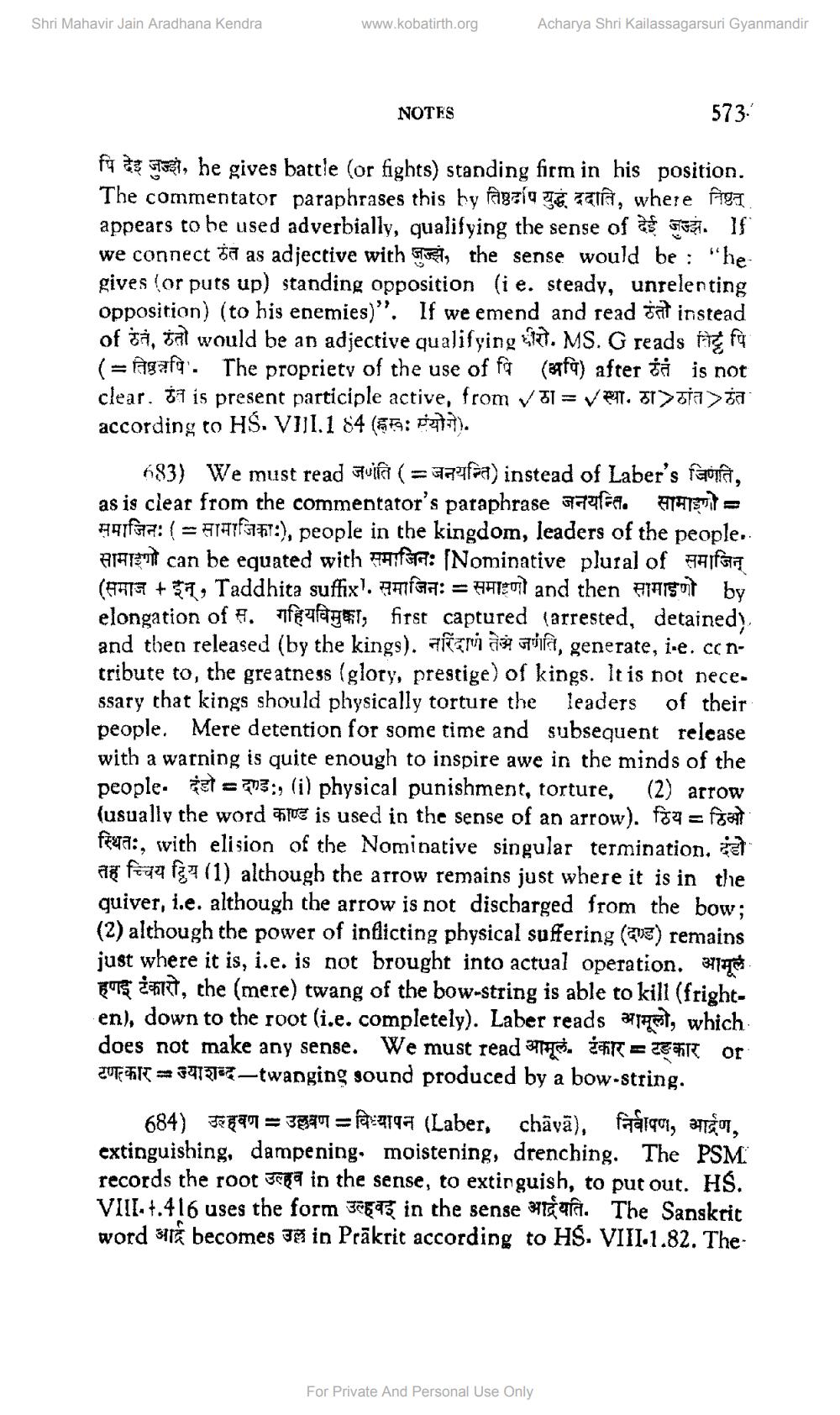________________
Shri Mahavir Jain Aradhana Kendra
www.kobatirth.org
Acharya Shri Kailassagarsuri Gyanmandir
NOTES
573
fue phant, he gives battle (or fights) standing firm in his position. The commentator paraphrases this by तिष्ठदाप युद्धं, ददाति, where निष्ठत् appears to be used adverbially, qualifying the sense of year. If we connect ta as adjective with stars, the sense would be : "he gives (or puts up) standing opposition (i e. steady, unrelenting opposition) (to his enemies)". If we emend and read ont instead of ठतं, ठंतो would be an adjective qualifying धीरो. MS. Greads तिट्ट पि (= तिष्ठनपि'. The propriety of the use of पि (अपि) after ठंतं is not clear. $1 is present participle active, from ✓ = VPI. T>ia > a according to HS. VI]I.1 84 (1949: Pela).
683) We must read Fica ( = 73fa) instead of Laber's fala, as is clear from the commentator's paraphrase 37274. 971341 = 4 7: = Frafar:), people in the kingdom, leaders of the people. सामाइणो can be equated with समाजिनः [Nominative plural of समाजिन् (#91 + $1, Taddhita suffix!. ATEA: = HAPO and then m ot by elongation of #. felaget, first captured (arrested, detained), and then released (by the kings). after a gift, generate, i.e. contribute to, the greatness (glory, prestige) of kings. It is not necessary that kings should physically torture the leaders of their people. Mere detention for some time and subsequent release with a warning is quite enough to inspire awe in the minds of the people. et = 103;, (i) physical punishment, torture, (2) arrow (usually the word 5108 is used in the sense of an arrow). fon = feat fixa:, with elision of the Nominative singular termination, a af fega fa (1) although the arrow remains just where it is in the quiver, i.e. although the arrow is not discharged from the bow; (2) although the power of inflicting physical suffering (que) remains just where it is, i.e. is not brought into actual operation. 3177 FUS FIT, the (mere) twang of the bow-string is able to kill (frighten), down to the root (i.e. completely). Laber reads apel, which does not make any sense. We must read आमूलं. टंकार = टङ्कार or ZUTETT = F41317—twanging sound produced by a bow-string.
684) 5690 = 3840 = fa#9197 (Laber, chāyā), fualqui, au, extinguishing, dampening, moistening, drenching. The PSM records the root seka in the sense, to extinguish, to put out. HŚ. VIII. 1.416 uses the form of in the sense of. The Sanskrit word 3r becomes a in Prakrit according to HS. VIII.1.82. The
For Private And Personal Use Only




